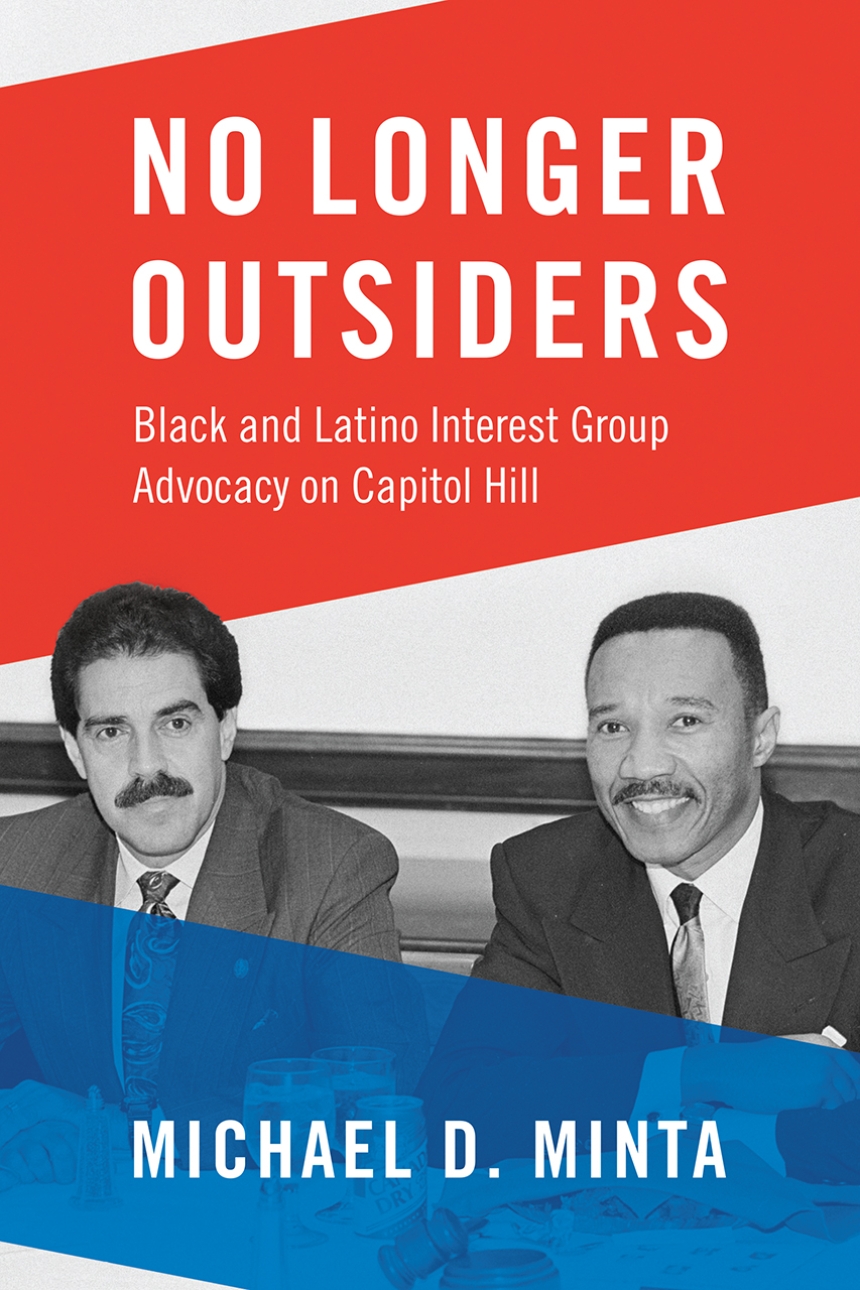No Longer Outsiders
Black and Latino Interest Group Advocacy on Capitol Hill
9780226765303
9780226765273
9780226765440
No Longer Outsiders
Black and Latino Interest Group Advocacy on Capitol Hill
With the rise of Black Lives Matter and immigrant rights protests, critics have questioned whether mainstream black and Latino civil rights organizations such as the NAACP and UnidosUS are in touch with the needs of minorities—especially from younger generations. Though these mainstream groups have relied on insider political tactics, such as lobbying and congressional testimony, to advocate for minority interests, Michael D. Minta argues that these strategies are still effective tools for advocating for progressive changes.
In No Longer Outsiders, Minta provides a comprehensive account of the effectiveness of minority civil rights organizations and their legislative allies. He finds that the organizations’ legislative priorities are consistent with black and Latino preferences for stronger enforcement of civil rights policy and immigration reform. Although these groups focus mainly on civil rights for blacks and immigration issues for Latinos, their policy agendas extend into other significant areas. Minta concludes with an examination of how diversity in Congress helps groups gain greater influence and policy success despite many limits placed upon them.
In No Longer Outsiders, Minta provides a comprehensive account of the effectiveness of minority civil rights organizations and their legislative allies. He finds that the organizations’ legislative priorities are consistent with black and Latino preferences for stronger enforcement of civil rights policy and immigration reform. Although these groups focus mainly on civil rights for blacks and immigration issues for Latinos, their policy agendas extend into other significant areas. Minta concludes with an examination of how diversity in Congress helps groups gain greater influence and policy success despite many limits placed upon them.
192 pages | 26 line drawings, 9 tables | 6 x 9 | © 2021
Political Science: American Government and Politics
Reviews
Table of Contents
One Introduction
Two A History of Black and Latino Interest Group Advocacy in the United States
Three Civil Rights Groups: The Challenge to Remain Relevant and Representative
Four Diversity and Legislative Success in Committees
Five Inviting Friends to Testify
Six Conclusion: Implications for Civil Rights Advocacy in the Era of Hashtag Movements
Acknowledgments
Notes
References
Index
Two A History of Black and Latino Interest Group Advocacy in the United States
Three Civil Rights Groups: The Challenge to Remain Relevant and Representative
Four Diversity and Legislative Success in Committees
Five Inviting Friends to Testify
Six Conclusion: Implications for Civil Rights Advocacy in the Era of Hashtag Movements
Acknowledgments
Notes
References
Index
